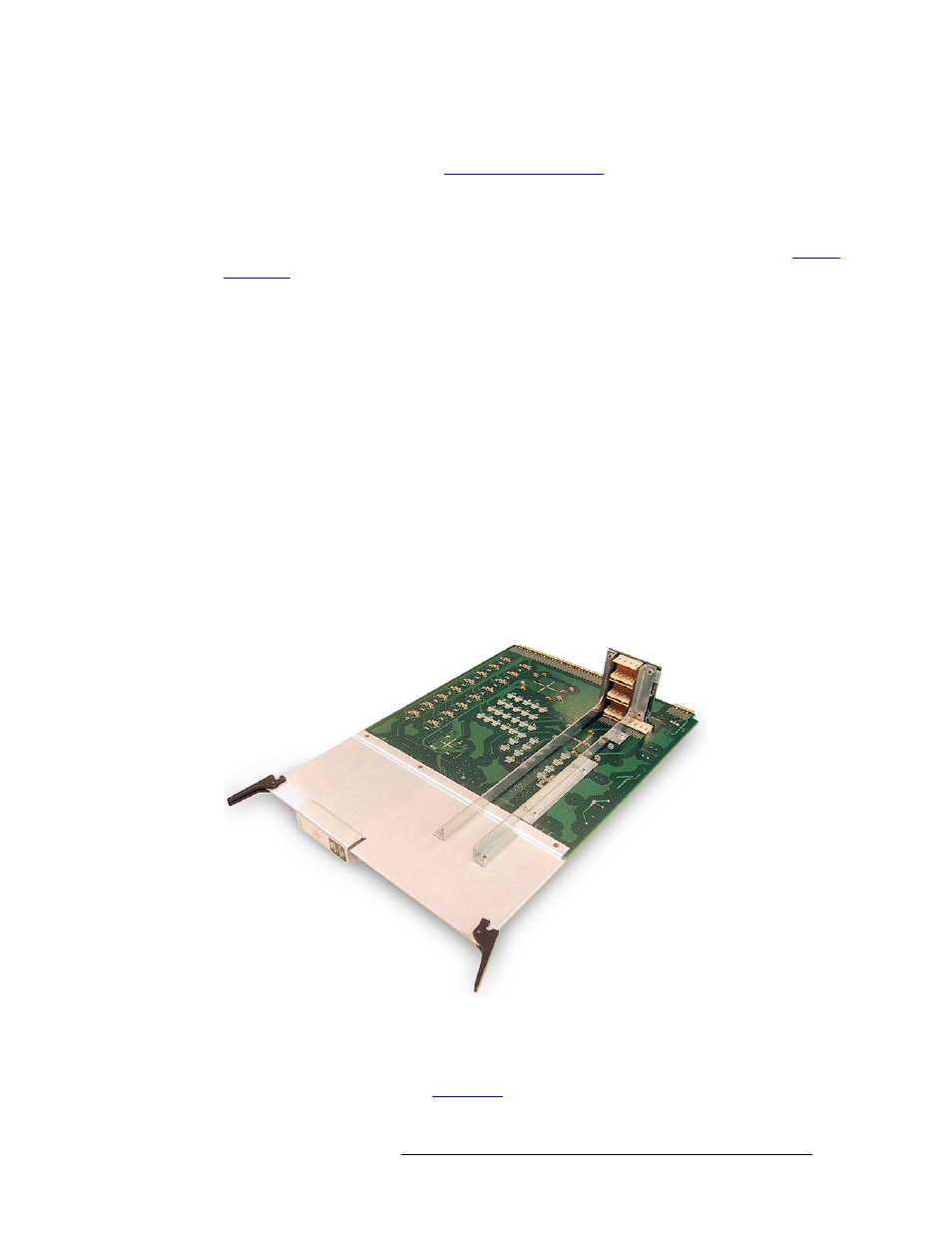Analog video, Introduction – Grass Valley NV5128 v.2.5 User Manual
Page 39

NV5128 Multi-Format Router • User’s Guide
29
2. Introduction
Active Cards
ing a second set of Standard SWB output cards, the configuration can be doubled 128 inputs x 128
outputs. For more information, see
Input Cards
The Standard SWB input card (EM0466) receives 16 SWB signals through the active backplane
connectors. Equalizers on the backplane automatically compensate for length of cable. (See
on page 83.) The equalized signal is forwarded to the input card. The input card buffers
the equalized incoming signals from the backplane and forwards the signal to the motherboard.
Output Cards
There are two Standard SWB output cards: a main output card (EM0463) and an expansion output
card (EM0465). The main output card has a “wing” that extends into the three slots to the right of
the slot occupied by the main part of the card, using all four output slots on the side of the frame in
which it is installed. (See Figure 2-23 on page 29.) Connectors on the wing mate with up to three
optional expansion output cards, installed to the right of the main Standard SWB card.
The Standard SWB main output card receives all 128 available SWB sources from the mother-
board. Two 64 inputs x 64 outputs crosspoint arrays on the main output card can switch up to 128
inputs x 64 outputs. From the crosspoint, 16 outputs are re-clocked and sent to the main card’s cor-
responding active backplane through connections to the motherboard. The crosspoint forwards the
remaining 48 outputs to the wing connector, which feeds the signals to any installed expansion out-
put cards. When installed, the expansion output cards are connected to the wing connector, the
motherboard and associated backplanes.
Figure 2-23 shows the EM0463 module and wing connector:
Figure 2-23. Standard SWB Main Output Card with Wing
Analog Video
Incoming and outgoing analog video signals are received or distributed through 16 BNC connec-
tors housed on a backplane. (See
on page 13.) The analog video input card and output
card manage NTSC and PAL signals transparently; no adjustment of jumper settings is required.
